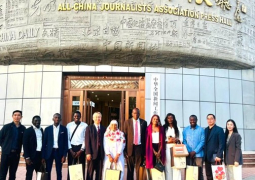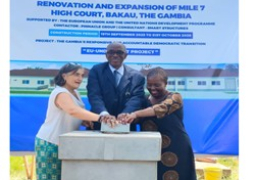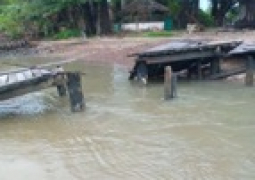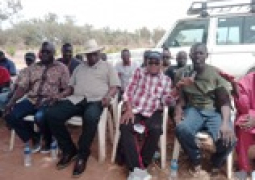The order instructed them to take care of former President Yahya Jammeh’s private collection of animals.
Gassama shared that he only discovered the order, dated May 22, 2017, last week from investigators, despite it clearly stating that all animals belonging to Jammeh should be under the care of the Gambia Wildlife Service. “We checked our records and didn’t receive any official notice from the ministry or the Attorney General’s office,” Gassama said, visibly surprised when shown the document during the hearing.
Even though he wasn’t officially told to intervene, Gassama and his team took it upon themselves to go to Jammeh’s Kanilai Game Park in late 2017 after hearing alarming reports on social media about starving animals. “Wildlife are like my own children. If you heard that your kids are suffering, you’d want to check on them,” he explained.
When they arrived, he said, they found a chaotic situation: hyenas, zebras, Derby Eland, hundreds of crocodiles, and two pythons were being cared for by untrained staff who only received allowances, not proper salaries.
Gassama shared that he hired eight former staff members of Jammeh as rangers. He made sure they received job security and training, sending those who could read and write to a training program in Makasutu focused on basic wildlife care.
To help with the animals’ health, he worked with the Gambia Husbandry and Donkey Trust, an organization led by the daughter of a former wildlife director. They provided crucial veterinary care and training, which he credited for saving many animal lives.
Discussing the current situation of different animal species, Gassama reported there are now “16 zebras (up from 12), 2 Derby Eland, 3 hyenas (down from 5), and hundreds of large crocodiles in three pools. The two pythons are still cared for by a single soldier due to cultural reasons,” he outlined.
Gassama highlighted the challenges of funding, noting that DPWM has never received a specific budget for Kanilai. They rely on scraps from butchers and their limited resources. “We have no budget for Kanilai; feeding these crocodiles is a struggle,” he explained.
He also pointed out that Kanilai Park is still under military control, which complicates the situation. This lack of clarity about ownership prevents DPWM from managing the park or collecting admission fees, which are reportedly taken by soldiers.
Gassama emphasised that his department has not been contacted by any other commission regarding these issues, apart from the Truth, Reconciliation, and Reparations Commission (TRRC), which once reached out for advice on draining crocodile pools to search for human remains a suggestion he advised against due to safety concerns. He mentioned that the Janneh Asset Commission never got in touch with them.
Read Other Articles In Headlines

Gambian journalists dialogue with All-China Journalists Association
May 13, 2025, 10:59 AM




